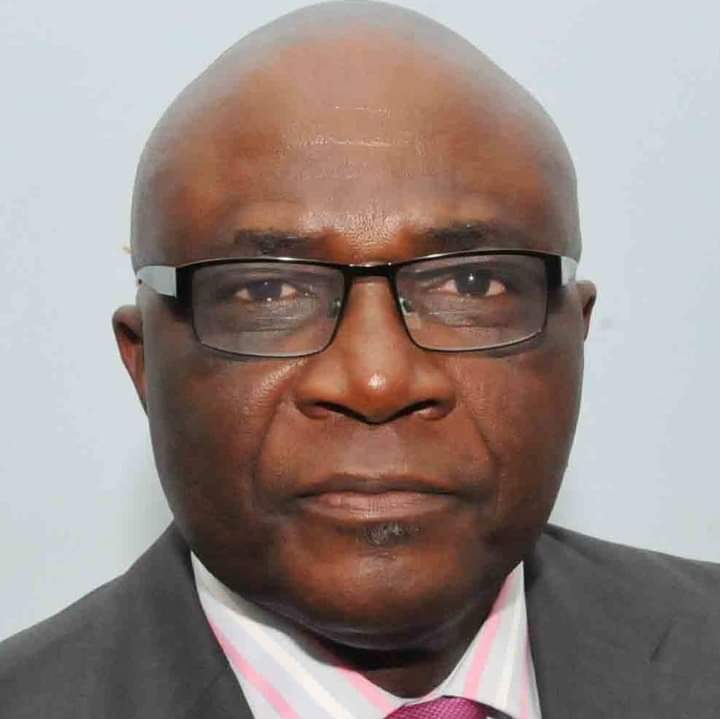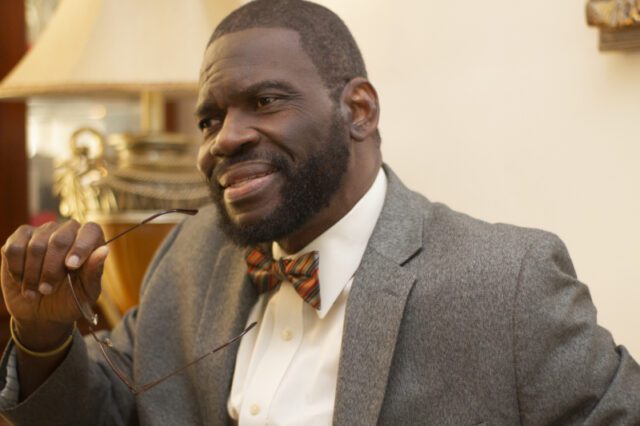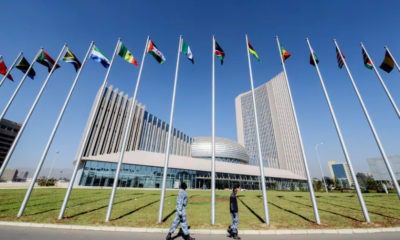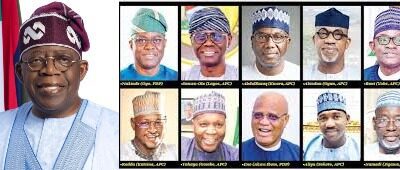Democracy & Governance
Bayo Onanuga’s Handling of NLC Strike: A Call for Reflection and Public Apology -By John Egbeazien Oshodi
Considering your statements in this light and acknowledging the broader implications of the incident would demonstrate a sincere commitment to transparency, justice, and the overall well-being of the Nigerian people. Recognizing the legitimate concerns of citizens and offering a public apology, coupled with a concrete plan to address the demands of the NLC, is not just a gesture of goodwill but a fundamental step in rebuilding trust and reaffirming the principles of democracy.

Bayo Onanuga, as the Special Adviser to the President on Information and Strategy, your recent characterization of the assault on the NLC President, Joe Ajaero, as a personal matter rather than a national concern, not only raises eyebrows but also underscores the need for a closer examination of the clarity and strategic acumen essential for your role. This critical analysis aims to delve into the unfolding scenario surrounding the nationwide strike initiated by the Nigeria Labour Congress (NLC) and Trade Union Congress (TUC) in response to the assault on Ajaero, and to express concerns regarding the government’s handling of the situation.
The essence of your role implies a commitment to providing information that serves the collective interest of the nation and promotes strategic communication.
However, your recent statement seems to downplay the broader implications of the incident, emphasizing the need for a reassessment of the gravity of the situation and the public sentiment it has generated.
The age of social media has ushered in an era where citizens, even in developing democracies, are more informed and expect a higher standard of communication from their leaders. Describing such a severe incident as a personal matter disregards the sensitivities needed in your position and falls short of the transparency and accountability expected in a democracy.
It is essential to recognize that court orders to suppress rights and manipulate local media are no longer foolproof strategies. The public’s resistance to such tactics is evident, and the dismissal of a court order to curb protests reflects the legitimate concerns of citizens, especially when those concerns revolve around assault, brutality, and injustice.
While acknowledging the Inspector General of Police’s investigation into the matter, it is crucial to address the lack of public trust in investigations where the police are investigating themselves. To ensure transparency and unbiased findings, an external, independent body should be involved in the investigative process.
The demands presented by the NLC underscore the severity of the situation. The arrest and prosecution of all those involved, including government officials, is not only a legal necessity but also a crucial step in restoring faith in the justice system.
The ongoing nationwide strike, now somewhat on hold and public outcry signify a collective demand for accountability and justice.
In characterizing the strike as illegal, immoral, and irresponsible, it’s imperative to critically examine the narrative and bring to light the actual concerns driving this collective action. Contrary to the assertion, the authentic illegality, immorality, and irresponsibility do not originate from the workers’ decision to strike but rather from a perceived deficiency in understanding, responsiveness to peaceful demands, empathy, justice, and the strategic use of accommodating language by the government. This reframing underscores the necessity of addressing the foundational issues fueling the nationwide industrial action and calls for a more empathetic and nuanced approach from those in positions of influence.
In addressing the situation surrounding the assault on the labor leader, the National Security Adviser (NSA), Nuhu Ribadu, emerged as a key figure, providing a sensible and sensitive perspective amid ongoing controversy and tensions.
Collaborating with the Minister of Labour and Employment, Simon Lalong, the NSA contributed to a more nuanced and constructive approach, showcasing a sense of responsibility and commitment to resolving the issues at hand.
In stark contrast to Bayo Onanuga, the National Security Adviser and the Minister of Labour and Employment, demonstrated a more informed and responsible perspective, tackling the situation with a focus on issue resolution and maintaining collective responsibility. This notable disparity in their respective approaches highlights the need for a more considerate and strategic handling of such matters, especially when dealing with the rights and concerns of the labor force.
A democratic message could be crafted to underscore the importance of addressing the root issues that led to the strike, acknowledging the legitimate concerns of the labor unions, and fostering an environment of open dialogue and resolution. It becomes crucial to emphasize that true collective progress and national interest can only be achieved when the government demonstrates a genuine commitment to addressing the grievances of its citizens and engaging in constructive conversations that prioritize the well-being of the masses.
Bayo, in your characterization of the NLC and TUC’s decision as unwarranted and an attempt to blackmail the government, it’s crucial to consider a broader perspective.
The real form of blackmail might be discerned in the longstanding practices of successive governments, where citizens are often compelled to provide services without fair labor demands. They face threats of frivolous court orders and security interventions as they exercise their fundamental rights. The true issue extends beyond the immediate incident, reflecting a systemic pattern of disregarding the rights and demands of workers. This strike is a manifestation of their frustration, signaling a call for a more just and equitable system.
In your distinguished role as the Special Adviser to the President on Information and Strategy, a profound understanding of the challenges faced by citizens is not just advisable but imperative. Treating individuals as inconsequential within the context of the prevailing conditions in an underdeveloped society does a disservice to the principles of justice and progress. For the sake of fostering genuine progress and implementing a more effective strategy, it is incumbent upon you to issue a public apology promptly.
Your characterization of the strike as illegal, immoral, and irresponsible reflects a misunderstanding of the broader concerns at hand. The real illegality, immorality, and irresponsibility may not be attributed to the workers’ decision to strike but rather to a perceived lack of understanding, responsiveness to peaceful demands, empathy, justice, and the strategic use of accommodating language by the government.
Onanuga, your recent statement questioning why the organized labor would engage in a nationwide strike over what you label a personal matter involving the NLC President, Joe Ajaero, lacks understanding and overlooks the legitimate concerns of the workers. Your characterization of the strike as a sinister agenda to cause hardship and civil disturbance is not only alarming but also falls short of the strategic communication expected from your role as the Special Adviser to the President on Information and Strategy. In light of this, a public apology to the Nigerian people is necessary.
Considering your statements in this light and acknowledging the broader implications of the incident would demonstrate a sincere commitment to transparency, justice, and the overall well-being of the Nigerian people. Recognizing the legitimate concerns of citizens and offering a public apology, coupled with a concrete plan to address the demands of the NLC, is not just a gesture of goodwill but a fundamental step in rebuilding trust and reaffirming the principles of democracy. In a democracy, where transparency and accountability are paramount, such actions are crucial for fostering a society that values and upholds the rights and dignity of its citizens.
My perspective, as a concerned individual committed to upholding democratic values and ethical conduct, is driven by the desire for a fair and transparent democratic process that fosters a culture of respect and understanding. I hope the President and his advisers recognize the importance of respecting fundamental rights, acknowledging the essential needs of labor and citizens, including the right to movement, expression, and association.
Wishing you growth in your position as the Special Adviser to the President on Information and Strategy.

John Egbeazien Oshodi
Professor John Egbeazien Oshodi, who was born in Uromi, Edo State, Nigeria, to a father who served in the Nigeria police for 37 years, is an American-based police and prison scientist and forensic, clinical, and legal psychologist. A sex offender assessment and treatment psychologist. A government consultant on matters of forensic-clinical psychological services in the USA; and a former interim associate dean and assistant professor at Broward College, Florida. The Founder of the Dr. John Egbeazien Oshodi Foundation, Center for Psychological Health and Behavioral Change in African Settings. In 2011, he introduced state-of-the-art forensic psychology into Nigeria through N.U.C. and Nasarawa State University, where he served in the Department of Psychology as an Associate Professor. He has taught at various universities and colleges including Florida memorial University, Florida International University, Broward college, Lynn University, and a contributing faculty member at the Weldios university in Benin Republic, Nexus International University, Uganda, Nova Southeastern University and Walden University in USA. He is a Human Rights Psychologist with a focus on African related environments. john.oshodi@mail.waldenu.edu



















